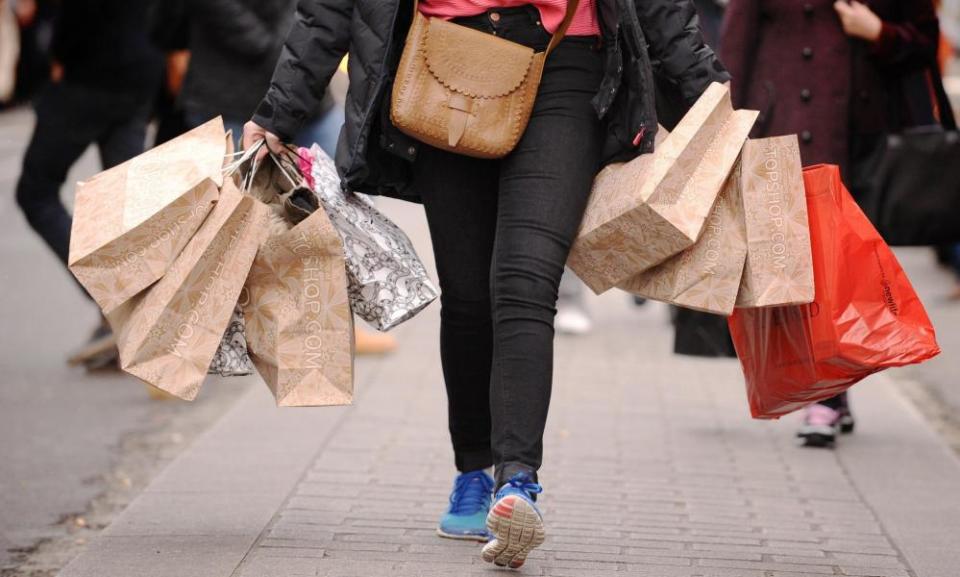UK retail sales rebound as shoppers snap up clothing and footwear

Retail sales rebounded last month as consumers flocked to buy clothing and footwear in the January sales.
The Office for National Statistics said sales increased by 0.9%, reversing a 0.6% decline during December.
Drawing a line under the worst year on record for retail sales in 2019, the value of goods bought also increased after the amount spent rose by 1.2%.
Analysts said the increase was even more impressive as the figure included a 5.7% month-to-month drop in petrol and diesel sales – the biggest since March 2015 – which was driven by higher fuel prices and bad weather.
The latest official barometer of high street and online sales is expected to persuade any wavering members of the Bank of England’s interest rate-setting committee against voting for a cut in the cost of borrowing.
Two members of the Bank’s monetary policy committee voted for an interest rate cut in January to boost the economy but are not expected to repeat their demand at the next meeting in March.
The January increase in retail sales failed to reverse steep declines at the end of last year. The ONS said a measure of sales volumes during the three months to January was down 0.8% compared with the three months to the end of October last year. The amount spent in retail fell during the period to January by 0.5% when compared with the previous three months.
Earlier this month, the Confederation of British Industry’s monthly distributive trends survey showed that the effects of weak demand across the high street translated into flat sales for a third month in a row.
Sales last year fell for the first time in 24 years as a dire performance on the high street dragged down the industry. A study by the British Retail Consortium and the advisory firm KPMG found total sales slipped by 0.1% in 2019, the lowest since they began monitoring the sector in 1995.
The downturn was influenced by a 0.9% fall in sales in the crucial final two months of the year, when many retailers achieve the bulk of their annual profits. That decline was partly driven by online sales rising by 2.6% in November and December.
Samuel Tombs, the chief UK economist at Pantheon Macroeconomics, said the rise in January sales confirmed that “the decisive general election has released the handbrake of political uncertainty on consumers’ spending”.
He said: “Fuel store sales should recover soon, given that oil prices have fallen back since January, though the recent storms might prevent demand recovering as soon as February.
“Looking ahead, the outlook for growth in households’ disposable incomes remains bright. CPI inflation looks set to hover about 1.5% over the next six months, thanks to falls in energy and import prices.
“Hiring indicators have picked up since the election, while more workers than in previous years will benefit from April’s 6.2% increase in the national living wage.
“Meanwhile, the government’s plans for a big increase in the threshold for national insurance contributions will boost households’ disposable incomes by 0.2% in April, while benefit payments are set to rise in April in line with inflation for the first time since 2015,” he added.

 Yahoo Finance
Yahoo Finance 